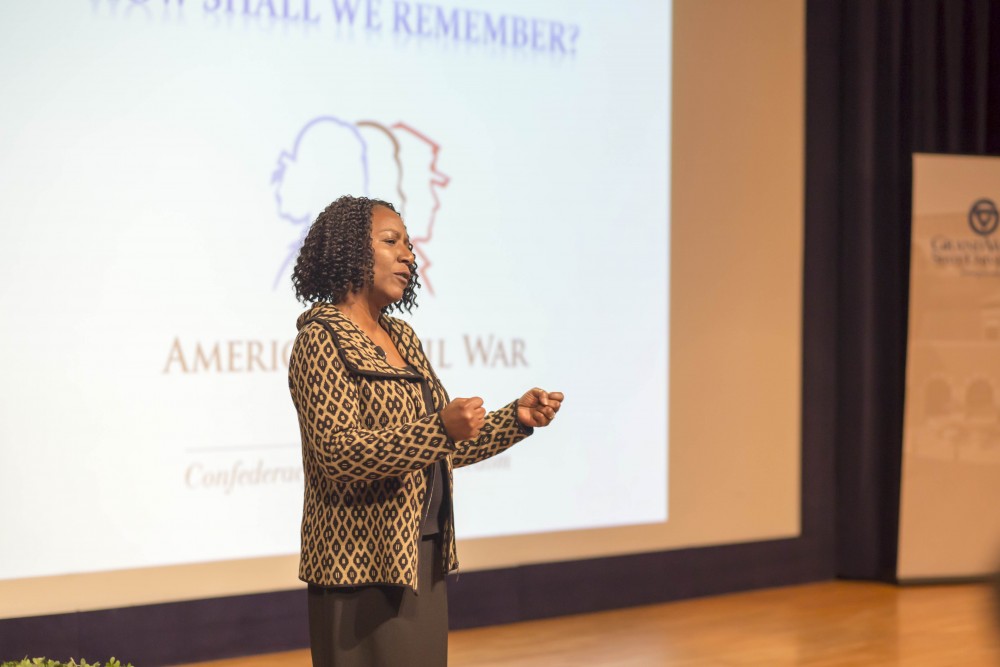Christy Coleman challenges modern memory of Civil War for MLK Week

GVL / Sara Carte Christy S. Coleman, CEO of the American Civial War Museum in Richmond, Virginia, speaks at the “How Shall We Remember?” event for the week celebration of Martin Luther King Jr. in the Loosemore Auditorium on Tuesday, Jan. 16.
Jan 19, 2018
Christy Coleman took on the task of answering questions about the past when she started her work as a history interpreter years ago. On Tuesday, Jan. 16, she was at Grand Valley State University doing the same.
Coleman spoke for about an hour during the “How Shall We Remember?” event as part of the Hauenstein Center for Presidential Studies’ Common Ground Initiative. The event took place at the DeVos Center Loosemore Auditorium, and a crowd of about 250 people filled both the auditorium and an overflow room to hear Coleman’s words.
Coleman, now the CEO of the American Civil War Museum in Richmond, Virginia, believes that each generation brings about new and interesting questions that must be answered.
“We look for answers to questions about new insights every generation,” Coleman said. “We revise history all the time; what we do is because of you and your questions.”
Coleman explained that when new questions are brought up, she and her colleagues dig through records to find answers. She said this generation of millennials is asking, “How shall we remember the Civil War?”
“Places should remind us of how the American Civil War altered everything,” Coleman said.
Coleman was shocked to find out that 48 percent (according to a 2011 Pew Research Center report) of people thought the Civil War was started primarily because of states’ rights. She said the war was clearly started mainly because of slavery: The underlying cause for secession was racially focused.
Coleman pointed to three clauses pertaining to slavery in the constitution of the Confederate States of America that differed majorly from the U.S. Constitution, including that the federal government couldn’t restrict slavery in any way, no laws could be passed about slavery and all future territories conquered by the Confederacy would be allowed slaves.
Coleman discussed many legislative acts or major events that led to the Civil War. She said the Missouri Compromise gave the South overwhelming political power and that Nat Turner’s Rebellion scared slave owners in the South. Coleman continued by explaining the Republican party’s rise to power and the election of Abraham Lincoln.
Coleman also identified the misinterpretation of Confederate statues and their meanings, saying that the Civil War was fought over slavery and that we shouldn’t try to see them or other Confederate commemorations in a different light than what they really represented. This generation is asking about the correct way to view the past, and they need to see it for how it really was, Coleman said.
The event was a part of the Martin Luther King Jr. Commemoration Week at GVSU. For a list of events taking place through Saturday, Jan. 20, visit www.gvsu.edu/mlk.

























